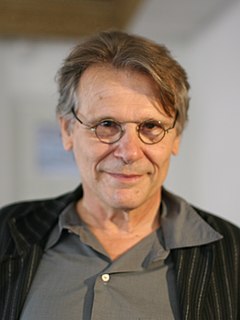A Quote by Erik Larson
I didn't know anything about the Lusitania. I started reading because I had nothing else in my plate. And as soon as I start reading, I thought now this is interesting, you know, the hows of what happened, the actual - the actual sinking of the ship.
Related Quotes
I can't do anything about how people who are all but completely unaware of my actual motivations and my actual thought process and my actual worldview, how they characterize me. There's not much I can do about it, except never say another word other than 'there's a ground ball to shortstop.' And I don't think that's going to happen.
But reading is different, reading is something you do. With TV, and cinema for that matter, everything's handed to you on a plate, nothing has to be worked at, they just spoon-feed you. The picture, the sound, the scenery, the atmospheric music in case you haven't understood what the director's on about... The creaking door that tells you to be stiff. You have to imagine it all when you're reading.
Well first of all I was nine weeks pregnant at the time and no one knew it. So it was - it had a whole other meaning for me not just because I had to let the dress out, you know, every few days before the actual day. But, you know, because that was the, you know, more important than anything else that was going on in my life. But in terms of actually winning I think I had been nominated four or five times before then. And every one of my co-stars had won up until that point.
Since I started as a comic person then became a musician to me it was interesting because I have this really great, interesting fanbase that's really smart and energetic and uh how could I steer them towards a medium that shaped who I was? You know, steer them toward comics. That was really the goal, to bring a lot of readers cuz they were reading a lot of comics but most of them hadn't been reading American comics, they'd be reading manga sitting on the floor of a Barnes and Noble.
A man I know who writes and aspires to be a novelist does very little reading, and he's not that successful. But I think it's because he's like the kid who wants to be a ballplayer and never goes to the ballpark or tries to hit a ball. So I'd say reading is the most important thing that I do, besides the actual writing. I'm always asking as I read, "How did the writer do this? Why do I suddenly have tears in my eyes? Why am I crying?"
I think a comic looks better in the magazine. The colors are designed to be on paper, not illuminated on screen. I don't like the aspect of people reading it for free. When people get things for free, they tend to not take them as seriously. But I don't know. I'm sure 10 times more people are reading it online than in the actual paper.
There is something about the medium [in comics] that allows for a simulation of actual experience with the added benefit of actually reading. You're reading pictures, but you are also looking at them. It's a sort of combined activity that I can't really think of any other medium having, other than, say, a foreign film when you are reading and seeing. It allows for all sorts of associations that might not come up with just words or just pictures.


































